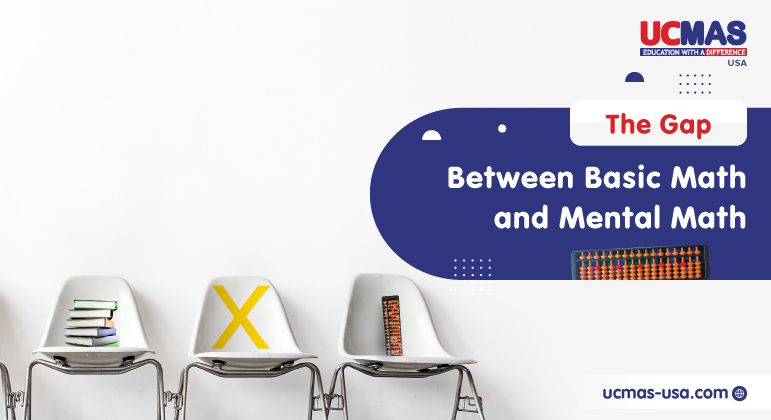Any child who is good with “numbers” is seen as intelligent. This was true in the past, and it is true even in the present. This is the reason that being good at mathematics is so important even today. A relatively easy and smoother way to go about this is by improving mental math with some techniques and tricks that can be practiced for an hour to 45 minutes daily. This can include memorization of square roots of numbers, breaking down complex problems into smaller, manageable ones, trying to solve as many complex equations in math problems as you can in 5 minutes, etc. Such exercises don’t need any additional time and space.
Mental Maths is All About Easy Math
Mental math consists of basic arithmetic functions done mentally to solve problems relatively quickly. It requires a basic understanding of math and how to use it to generate usable solutions. It builds upon the basics of general math and requires mental calculations of the numerical problems. This provides holistic mental development due to an increase in the creativity and problem-solving skills of the child.
Mental math training programs help provide such training with the use of systematic procedures and professionally curated courses to facilitate easy learning. They can also act as quality after school programs designed to help increase the academic performance of children and provide them with the extra boost they need to become more confident. These effective after school programs are slowly becoming more and more popular these days because of the academic services and assistance that they provide. UCMAS is one such quality afterschool program that aims at teaching children mental math and improving their mental arithmetic capabilities with the use of the abacus, an ancient mathematical tool. An abacus is a wooden frame that uses beads to perform mathematical calculations, and uses sensory skills to do the same.
Abacus Mental Math
With an abacus, mathematical functions ranging from basic to complex can all be performed quickly. They can be used as a tool to improve mental math learning in early education and improve such abilities in higher education. They also help in strengthening the visualisation capacity of the child, and in hypothetical thinking by improving memory skills. Another basic benefit of these programs is the increase in the concentration ability of children because it facilitates the development of the brain’s frontal lobe.
How does UCMAS Help Make Mental Math Easier?
These are the same benefits provided by the UCMAS after-school mental math program. These programs cater to children between the ages of 5 to 13 years, and provide programs that assist them in their academics. By providing mathematical assistance at this early age, they help children in building a sound basic foundation for future education, prepare them better for advanced mental math calculations and everyday endeavors and ensure holistic development.
The details for these programs and training sessions can be found on the UCMAS website, along with their eligibility criteria, registration requirements, and details, and other facilities that they provide. These benefits help in understanding why UCMAS is a good place to start if you want to improve your child’s mental math skills, and help them become math whizzez! Visit our website for more details and to better understand the training program we offer.


